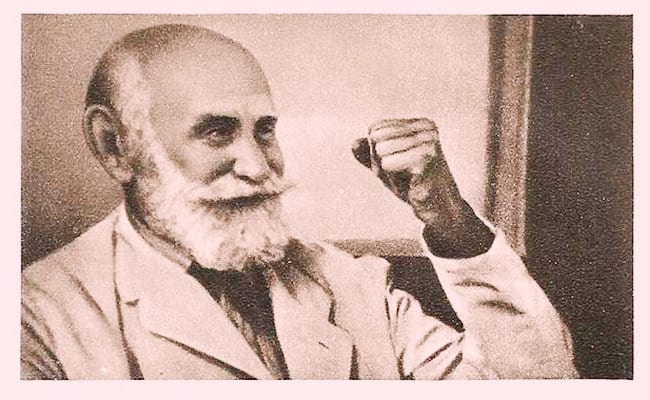The human being has adopted different ways of understanding the world, one of them is to be able to attribute an exact name to each phenomenon or situation that he experiences, this is the case with the different learning methods that each individual adopts as best corresponds to understand other elements. of the universe.
For example, experiencing changes or adapting to new environments is a way of learning for humans. That is why different learning theories have been developed throughout history so that each being has the freedom to learn according to the explanatory methods that he understands. In the article below you will learn a little more about these various theories and their origin.
Learning processes

Before delving into the long scientific explanations about the main concepts and the different perspectives on the subject, it is necessary to meet again about the concept of learning that each of us has.
Since the beginning of existence, we are all conditioned on ways of learning that have remained within the family customs, however, from a psychological point of view, not all children have the same opportunities to learn and grow within the limits considered healthy. This is because each child has a capacity for discernment different from the restTherefore, it is very important to observe the behavior of the same to detect which or which is the learning method according to its ability to evolve within a certain environment.
It is then that science and psychology can have great weight in the education of children, considering that a child is more likely to learn from scratch than an adult to quickly adapt to new parameters. In a first world society it is more likely that a education based on basic principles of psychology work
In the same order of ideas, these theories that we will explain below, are based on simple steps that constitute a long process of obtaining knowledge with a useful purpose to the life of one's own being.
In short, these theories help the individual to understand, predict and incorporate different human behaviors, in order to establish strategies that help to discern how the human being acquires knowledge. The main study of these theories is focused on an acquisition of skills or abilities to later acquire their own concepts.
What are learning theories?
All learning implies a change in behavior or way of being, and these same consequences become the cause of the same learning, that is, that each human being is capable of acquiring knowledge new regardless of age doing something differently, in turn, this effect is reversed and creates new patterns of behavior based on new developmental habits.
Each of the learning theories has a psychological-philosophical foundation, managing to be modified and adapted to the field of pedagogy to implement them within the classrooms; therefore, they are a method of studying the human being from all its areas.
It is then that it becomes a complex task to define for sure the words theory and learning; since observed from a philosophical point of view, a psychological point of view and a pedagogical one, may have a different or relative interpretation. However, each of the branches that studies these theories have a single purpose in common: to evaluate the different behaviors and learning strategies that the individual can acquire, regardless of their age, ethnicity or social class.
Under what perspectives can these theories be observed?

Like all theory, each of the knowledge that compose it is exposed in question under an investigative lens that tests the different phenomena that happen to it.
A theory is a final conclusion derived from a long process of trial and error with research foundations, that is why the learning theories studied today are not the same conclusions that were taken years ago. Some of the main ones they served as the basis for the study and development of later theories.
However, these theories that we know today have four perspectives in general: focusing on an observable behavior, learning as a premise for a purely mental process, emotions as a determining factor for learning, and finally, social learning.
Humanism
This wonderful ism, arises in the 60s to study the human being in a different way than psychology, where ethical and moral values are those that build certain behaviors of being. Although the term can also be attributed to Renaissance humanism, it was not until the last century that it was given a much more “civil” meaning.
This intellectual movement breaks with previous conceptions of psychology where the The theory of operant conditioning is contradictory when stating that each consequence builds human behavior. For its part, humanism seeks to study the human being as a whole, where his interests, objects of motivation and values are the whole that describes or conditions him.
It also seeks to create self-sufficient human beings under the air of autonomy of thought and decision.
One of the most representative exponents of the movement is Abraham Maslow, who explains that human beings must satisfy or satisfy their main needs to achieve a general balance. Maslow's pyramid orders the basic needs of man in hierarchical order according to the importance that each one has in the very development of being.
It is then that the student who has a certain level of balance within his scale of personal needs, can make the learning methods much more effective in his daily life.
When it is able to meet each of the needs set out in said pyramid, it is then that it can proceed to build strong self-esteem, healthy social relationships and an autonomous capacity for self-motivation.
Now you are able to set your own priorities and decide whether you want to lean towards experiential learning or spectator learning; the first has been the “valid” learning method according to the majority of the population, however, the second method can be equally successful if the person complies with these main premises.
A person adept at the reasons of humanism, lives under the freedoms of his own being, as he meets his basic needs and is capable of autonomy is able to experiment with different theories of learning based on what works best for him
Behaviorism
One of the most rational learning processes is behaviorism, created by John B. Watson argues that the student is completely passive and that he can only be evaluated through a process of observation. You will respond to the stimuli around you in a positive or negative way.
Then, these responses will make the consequences of the stimuli, whether negative or positive, have a punishment; the same as it will determine if the positive or negative behavior is repeated in the future.
Also, behaviorism has many limitations as a learning theory, since it is only inclined to study the object in question based only on its behavior and not on thought processes; a purely external study.
If the behavior that is carried out has a pleasant response for the student, it is very likely that it will be repeated in the future, if not, it may never be repeated again.
Later, Pavlov, made several experiments using dogs and pigeons, where the sound of a bell would condition a behavior after the stimulus. After associating the stimulus of food with the sound of the bell, Pavlov managed to get the dogs to salivate just by ringing the bell. So he managed to show that the consequences of actions correspond to behaviors.
Cognitivism
In counterpart to behaviorism, cognitivism gives to different mental processes that the limited studies of behaviorism do not. Now the mind is part of a more complex study and much more in line with the human being and his mental capacity.
For cognitivism, it is of primary importance to study the capacity for analysis, problem solving and the different mental processes to arrive at the how of learning.
Obviously, cognitivism arose as a counterpart to behaviorism, where the main premise defines that human beings are capable of discerning on their own under the stimuli of the mind the different behaviors they adopt. He argues that not due to the fact of having an external stimulus, there must necessarily be a learning or pattern, where human beings simply cannot function or react like animals.
A change in behavior is clearly observed but as a response to the indications that the mind gives to the person, not as a consequence of an external stimulus.
One of the relative theories of learning, states that people are capable of learn faster with visual stimuli and wordsIn other words, a person is able to retain information much faster if two elements of these categories are associated with it. This multimedia learning theory is the one put forward by Mayer, defended today by pedagogues and psychologists as a very good learning alternative, especially for younger ages.
Social learning
This theory, arises, also in counterpart to behavioral affirmations not according to what is really considered "prudent", that is to say; what people are not only capable of learning according to an acquired behavior from a consequence of their actions.
For a Canadian psychologist named Albert Bandura, not all direct stimuli and consequences can describe the different types of learning. It states that it would be much more complex for human beings to rely only on the experiences acquired by ourselves to obtain meaningful learning, since, through the observation of third parties, learning can be achieved.
By resuming the importance of growing up in a healthy environment, children are able to repeating behaviors just by observing them in others, much more if they are adults who star in the scenes that can later be repeated.
One of his studies consisted of recording an adult hitting a doll and showing the video to a number of children, at some point not immediately the child managed to repeat the behavior. He will do it himself when he has the opportunity to do so.
It is then that he concludes that people are capable of learning based on what they have already seen in others instead of trusting their own behaviors.
THANK YOU FOR GIVING A LIGHT TO MY BRAIN, GIVING ME A WONDERFUL LEARNING OF EVERYTHING